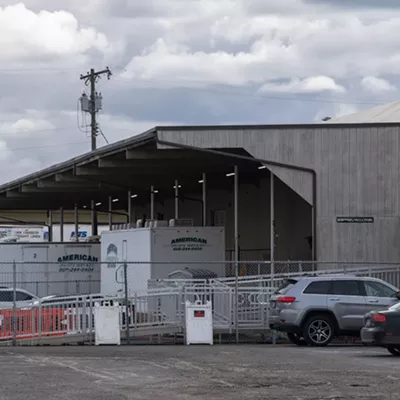Elouise Cobell sits in the lounge at the River Inn, but her mind is 200 miles away. She's just arrived from her cattle farm outside Browning, Mont., where she lives with her husband. There's still two feet of snow there, and she's worried about her cows. They started calving last week, and it's still really cold out -- some of the calves may not make it.
What could get such a cattle farmer off the ranch in the middle of calving season? How about one of the biggest class action lawsuits ever filed against the United States?
Cobell is a Blackfeet Indian, and she has sued the federal government over what she alleges is more than 100 years of mismanagement of Indian Trust Funds.
"The Department of the Interior simply can't account for the money," alleges Cobell. "We have done the forensic accounting. We know what we are owed."
The lawsuit seeks $12 billion in restitution on behalf of 300,000 Indians from tribes across the nation. Cobell is the named plaintiff.
Earlier this week, Cobell was in Spokane for a Gonzaga Law School symposium on her case.
"I'm here to talk to the law students. I want them to question the oath they take when they become lawyers. I want them to ask themselves: How long do you continue to defend something that obviously is a wrong?" says Cobell.
It takes determination to fight the federal government, but there's no question that Cobell is going to continue her fight to the bitter end: "They are beat. They will lose, I just know they will."
Back in 1887, after the Blackfeet and many other tribes were forced onto reservations, the Dawes Act split about 11 million acres of tribal land into parcels and assigned each lot to individual Indians.
"The government was trying to straighten out these 'savages,' hoping they would settle on the parcels as farmers," says Cobell. "But the Indian people had no resources, no credit. They had none of what it took to begin to develop the land."
So the government offered the Indians a deal, says Cobell: " 'We'll manage it. We'll take care of it and lease it from you,' said the government. But never to this day have there been issued accurate statements of this land."
The government found and extracted oil, natural gas and minerals on the land. But the money from this bounty of natural resources went to the Bureau of Indian Affairs, under the Department of the Interior, and on to coffers at the Treasury Department. Very little of it ever made it back to the landowners, Cobell alleges.
"There are no accounts, and since 1887 there has never been an audit -- never," says Cobell.
Cobell was born and raised on the Blackfeet Reservation. She's a banker by trade, one of the founders of the Blackfeet National Bank, and when she became tribal treasurer in the late '70s, she couldn't figure out the account statements she got from the government.
"It was like this: one day you'd get a green check from the Treasury, but you wouldn't know how much it was going to be," says Cobell. "Then months could pass, and you'd get another check -- but you still didn't know why, or when the next was coming."
Her inquiries to the BIA were stonewalled, she says.
"They told me to my face that I was stupid," Cobell says. But she knew better, and she stayed "in their face," as she puts it. Her determination has gotten her some results.
In 1994, the Department of the Interior appointed a special trustee for the funds. That didn't solve the troubles, though, and Cobell filed her suit in 1996. That same year, the courts issued a protective order for the Indian Trusts documents.
The government's actions since then serve to strengthen Cobell's allegations. The feds have failed to follow a 1998 Congressional order to audit the trust accounts (officials say they're working on it) and shredded protected documents (a judge fined the Interior Department $600,000 in 1999 for doing so). They have mismanaged accounts so poorly in recent years, she says, that a judge is now considering appointing a receiver -- an outside official -- to manage them.
"We have asked for a court-appointed receiver to be put into place, and if we win, this will be the first time a receiver has ever been appointed to take over for the government," says Cobell.
Last July, Interior Secretary Gale Norton announced she would bring the department's trust practices into the 21st century and live up to the responsibilities owed to the Indian tribes.
Just four months later, though, she was charged with contempt of court, because her department still hadn't figured out what happened to the trust money.
Cobell says she is not going to give up until the accounts are settled.
"To the government, this money is just a giant slush fund that they have used on everything else, like to balance the budget," she says. "Here we are trying to do things right in other countries, and we have criminal behavior in our own backyard. Something has to be done about this injustice."















